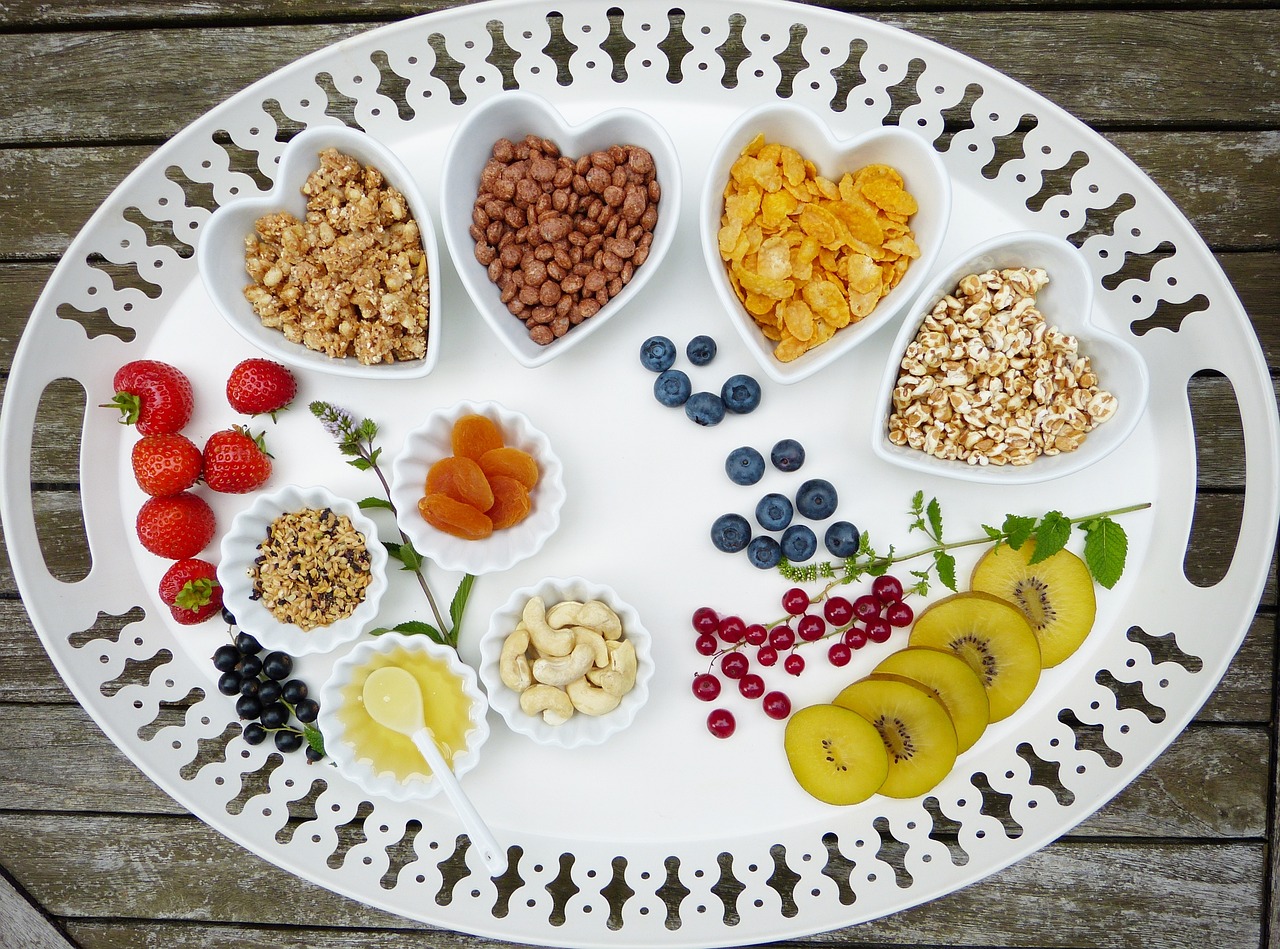Diabetes is a serious and persistent health condition. It has a big impact on a large part of the global population. Poor eating habits, lack of exercise, stress, and being overweight are major contributing factors to diabetes. Some simple lifestyle changes can improve your overall health and better manage your diabetic condition. Living a healthier life encompasses eating a proper and nourishing diet, exercising frequently, and staying physically active.
Research has indicated that carbohydrate-restricted diets are beneficial in various areas of diabetes control.
What is a Low Carb Diet?
When someone has diabetes, their body does not effectively break down carbohydrates. Additionally, a diet low in carbohydrates should include a good amount of protein and beneficial fats. Moreover, it must restrict sugar and starch contents. A low-carb diet is defined as having less than 100-150 grams of carbohydrates a day. If you want to enter ketosis, the amount of carbohydrates consumed should be under 50 grams in a single day.
Eating fruits, vegetables, lean sources of protein, seafood, healthy fats, and whole grains will form a healthy low-carbohydrate eating plan. Also, you can take low-fat dairy products in moderation. It includes milk, greek yoghurt, cheese and likewise. Furthermore, they are a beneficial source of protein and calcium. Both of these components are crucial for managing diabetes as well as for good health in general.
Opting for a low-carbohydrate diet is an effective way to manage one’s weight. However, the health benefits are countless. A key advantage is avoiding and controlling diabetes. The nutrient value found in low carb diets is the cause for this. The rationale is simple. The more you reduce your carbohydrate intake, the less dramatic an increase you will see in your blood sugar levels.
READ MORE: Macronutrients – How Much Do You Need?
Why Low Carb Diet for Diabetes?
Excessive carbohydrates are harmful, especially for diabetes. It spikes your blood sugar. In a state of health, your body metabolizes carbohydrates into glucose. Insulin triggers the cell to take it in and use it for its functions. In diabetes, however, a lack of insulin or the cells’ inability to use it prevents it from being taken in. This leads to the buildup of glucose, causing an increase in blood sugar.
People with diabetes are often overweight or obese. Being overweight can result in diabetes, heart issues and related concerns. So it is a double-edged sword. Losing weight in a healthy manner through alterations to one’s lifestyle can significantly control the amount of glucose in the bloodstream.
It includes regulating blood glucose levels and weight loss. As well, it assists in lowering the amount of anti-diabetic medications. Moreover, it improves the overall health of the patients. Significant advances are seen in individuals when their carbohydrate consumption is a mere 20 grams on a daily basis. However, there is no magic number. You can choose the amount of carbohydrates that is ideal for you based on how your body reacts to them. Thus, it is best to get advice from a nutritionist to determine what is most suited for you. You should also take a record of your blood sugar levels before and after eating food. Your carb levels are alright as long as your blood sugar is lower than 140 milligrams per deciliter. Also, the kind of carbs plays an essential role. Examples of food items with high fiber that aid in controlling glucose levels on meal plans designed with those with diabetes in mind include vegetables, nuts and seeds.
Importance of Carbohydrates
Carbohydrates are essential nutrients. It is an essential nutrient comparable to protein and fat. The carbohydrates break down to glucose. The cells take in the substances and use them as a form of power. Moreover, any surplus carbohydrates are saved in the liver and muscles.
Aside from energy sources, they are required for a variety of purposes. It includes bowel movements, digestion and likewise. Hence, a total removal of carbohydrates can cause unwanted consequences. This could lead to poor nutrition, an imbalance of electrolytes, an excessive loss of body fluids, irregular bowel movements, and more. Headaches, dizziness and fatigue are other signs.
Moreover, carbohydrate restriction may result in ketosis. The metabolic mechanism in which fat is metabolized into ketones to generate energy is known as ketogenesis. Consequently, it might not be beneficial for people with diabetes. Signs of ketosis may include feeling lightheaded, having a headache, and being very tired.
Nonetheless, you should be discrete in choosing carbohydrates. Be sure to include complex carbs in your low carbohydrate eating plan. Only using whole grain products instead of the refined varieties. Whole grains contain all the essential nutrients needed for good health. They help to regulate your sugar levels. Thus a low carb diet is preferred.
Before changing your eating habits, consult your medical care provider. Having a clear set of instructions is very important, particularly when you are taking medication. In addition, it helps to avoid any complications.
Benefits of Low Carb with Diabetes
A low-carb plan should include fruits, whole grains, poultry, eggs, nuts, seeds, and cheese that are packed with nutrients. Additionally, these foods are full of antioxidants, dietary fibres, healthy fats, essential nutrients, etc. Every one of these components has the capacity to control your blood sugar levels. Additionally, it promotes overall health. In conclusion, putting together an effective low carb eating plan can improve your immune system, which can protect you from a range of illnesses and issues.
Weight Loss
Obesity and being overweight can lead to Diabetes. Research indicates that following a diet which is low in carbohydrates is an efficient way of controlling weight and obesity. Diets that are low in carbohydrates that include high levels of dietary fibre make you feel more satiated for a longer time frame.
As a result, it prevents overeating. In addition, foods rich in carbohydrates are great for maintaining healthy potassium levels. Therefore, it regulates the fluid content in your body.
Reduces Triglycerides
Diabetics are at risk of having high triglyceride levels. If too many carbohydrates are consumed, they will be converted into fat. Studies have discovered that having a diet full of carbohydrates can be the reason for elevated triglyceride levels.
They are fats that are not good for you or cholesterol that builds up in your bloodstream. This impedes the flow of blood, causing an increase in blood pressure and clots to form. Thus it can trigger cardiac diseases. In the case of diabetes, it is pretty common.
Boosts Good Cholesterol
Search for foods that contain beneficial levels of omega-3 fatty acids. It helps to increase the good cholesterol HDL. But conversely, it assists in diminishing the levels of low-density lipoproteins or bad cholesterol. LDL is associated with heart diseases. The danger of developing cardiac illnesses is a major concern for those who suffer from diabetes.
Reduces Blood Glucose Levels
Replacing carbohydrates with dietary fibers in a low carb diet can drastically reduce your blood sugar. Also, the fibre does not spike your glucose level. Thus, it triggers the body to produce more insulin. Thus a low carb diet stabilises blood glucose levels.
In addition, a low carbohydrate diet should include appropriate amounts of protein. Studies conducted recently indicate that they possess qualities that can stimulate the production of insulin. The result is that glucose gets removed from the blood. Thus proteins help in stabilising blood glucose.
Professional Advice For Diabetic Meal Plans
Three professionals are offering their advice on how to recognize what dietary requirements a person has as a diabetic and create the appropriate meal plan for them. Additionally, these experts are helping to prevent some of the frequent dietary blunders.
From Alan Bishop:
When people are diagnosed with diabetes, their diets may be limited in carbohydrates. The general idea is that limiting the amount of carbohydrates you eat will keep your blood sugar levels from increasing suddenly. People frequently err in not taking into account the amount of carbohydrates they are consuming and consequently consume too many of the basic forms of sugar. For instance, a 32-ounce sports drink has almost 60 grams of sugar, and a 24-ounce Frappuccino can pack in over 80 grams.
Steer clear of these errors by accurately gauging each portion with a food scale and steering clear of any sugary drinks. It appears that there will be lasting benefits to maintaining blood sugar levels when the amount of carbohydrates consumed is limited to less than 90 grams per day, regardless of the individual’s situation. The number of carbohydrates you need could be anywhere from 20 to 100 grams, depending on what your individual needs are.
In theory, having a daily intake of 20 grams of carbs is beneficial; however, it can be tough to achieve in practice. Having a conversation with your medical practitioner and establishing a plan that you can follow is vital.
My main recommendation for those who wish to effectively manage their diabetes through dietary modifications is to make sure to incorporate a diverse range of food options in order to avoid becoming overwhelmed when following a low-carb plan. It is important to vary your diet by adding in a fresh vegetable each day, utilizing diverse spices on a daily basis, and aiming to experiment with a different type of protein each week such as bison, quail, duck, and elk. Many may whine about the tediousness of low-carb diets, but they overlook the remarkable tastes unique ingredients can provide.
At the end of it all, I sincerely wish to encourage anyone beginning a program of nutrition for diabetes to be bold and seek aid. A lot of individuals don’t have a clue how to get rolling when it comes to implementing substantial modifications, and it is certainly not a mistake to retain a specialist to get you going. It can be extremely aggravating to be exhausted, starving, and exhausted yet not witnessing any outcomes. Obtain an individual who is knowledgeable to make sure your efforts will pay off.
From Jason Barbour:
The biggest error I observe from people beginning a dietary routine for diabetes is not being adequately ready. I assert that the majority of individuals comprehend the fundamentals, even though it is true that there are some people who are unaware of what foodstuffs to steer clear of. People tend to consume healthy foods when they have the opportunity to do so. When they’re pressed for time, they go for what’s quick and easy. If you don’t make a plan, you will likely not be successful.
Rather than set yourself up for failure, take steps towards success by preparing your food beforehand, subscribing to a nutritious food service, and examining the list of offerings before placing your order when dining out. I think that while food items are heavily influenced by individual factors such as genetics, which can largely decide the number of carbs someone requires, how they respond to certain foods and how their body utilizes fat effectively, there are still some general guidelines which apply to the majority. In order to regulate your blood glucose levels, enhance your insulin sensitivity, and bolster your overall metabolic profile.
- Stick to pasture-raised proteins.
- Balance your fats.
- Keep your total carbs under 100 grams per day and eat at least 25 grams of fiber each day.
Take readings of your blood sugar consistently and record the levels in a food diary to comprehend the most influential foods on your blood sugar. It is generally agreed upon that food high in sugar and processed goods should be moderated, but like I mentioned earlier, personal nutrition is also a significant factor.
For example, research shows that individuals with the PPAR-y genetic variations may have a heightened risk of diabetes and cardiovascular complications if they consume too much saturated fat, especially if their intake of saturated fat is more than their intake of monounsaturated and polyunsaturated fats. To put it differently, the majority of the populace would experience just a minor raise in their blood sugar levels after indulging in a ribeye, while some individuals would have a much stronger response. Doing tests frequently can give you an incredibly useful look into your own dietary requirements and help prevent such scenarios from occurring.
From Zac Bell:
I frequently notice individuals neglect to consider the total calories and overall carbohydrate consumption in one sitting. It is integral for those with diabetes to keep track of their blood sugar levels during the day, particularly if they are taking medication which must be ingested with carbohydrates. If Type 2 diabetes is a factor, there could be more problems away from just insulin resistance.
The adverse effects on health resulting from having an unhealthy weight can lead to a variety of negative health outcomes. Through getting into shape and shedding pounds, not just can you become more receptive to insulin and stronger in controlling/turning around your Type 2 diabetes, you can also enhance many parts of your general wellbeing. Keeping track of total calorie and macronutrient consumption, not just carbohydrates, is essential for achieving the positive health and physical fitness gains associated with weight loss. Focusing on protein, fat, and carbohydrates together can increase your chances of achieving success.
For long-term success, it is essential to find a meal plan that you can consistently maintain. This is true for any type of nutritional approach. Keeping track of the standard of your carbohydrates can produce considerable effects. It is essential to stick to a low-carb diet and make sure these carbohydrates are coming from leafy vegetables and fruits with a low sugar content. Including good-quality lean protein along with carbohydrates which contain a lot of fiber will help prevent blood sugar levels from soaring.
Eating a combination of protein and fiber may increase your body’s ability to burn calories or your metabolic rate. The end goal ought to be enduring great glycemic direction so as to build your responsiveness to insulin and diminish your fasting blood sugar and insulin levels.
Eating smaller meals more frequently throughout the day while maintaining your calorie intake could aid in regulating both appetite and glucose levels. I’m not advocating for dividing up your food into eight distinct servings throughout the day; I’m merely suggesting that eating in moderation with a few hours in between meals.
Including intermittent fasting into your routine could potentially increase your insulin sensitivity. Some individuals who follow an intermittent fasting routine eat within an eight hour time period in a day and abstain from food for the other 14 hours. This lets your glucose levels and insulin go back to what they were originally since you are not always in a state where you have just eaten.









